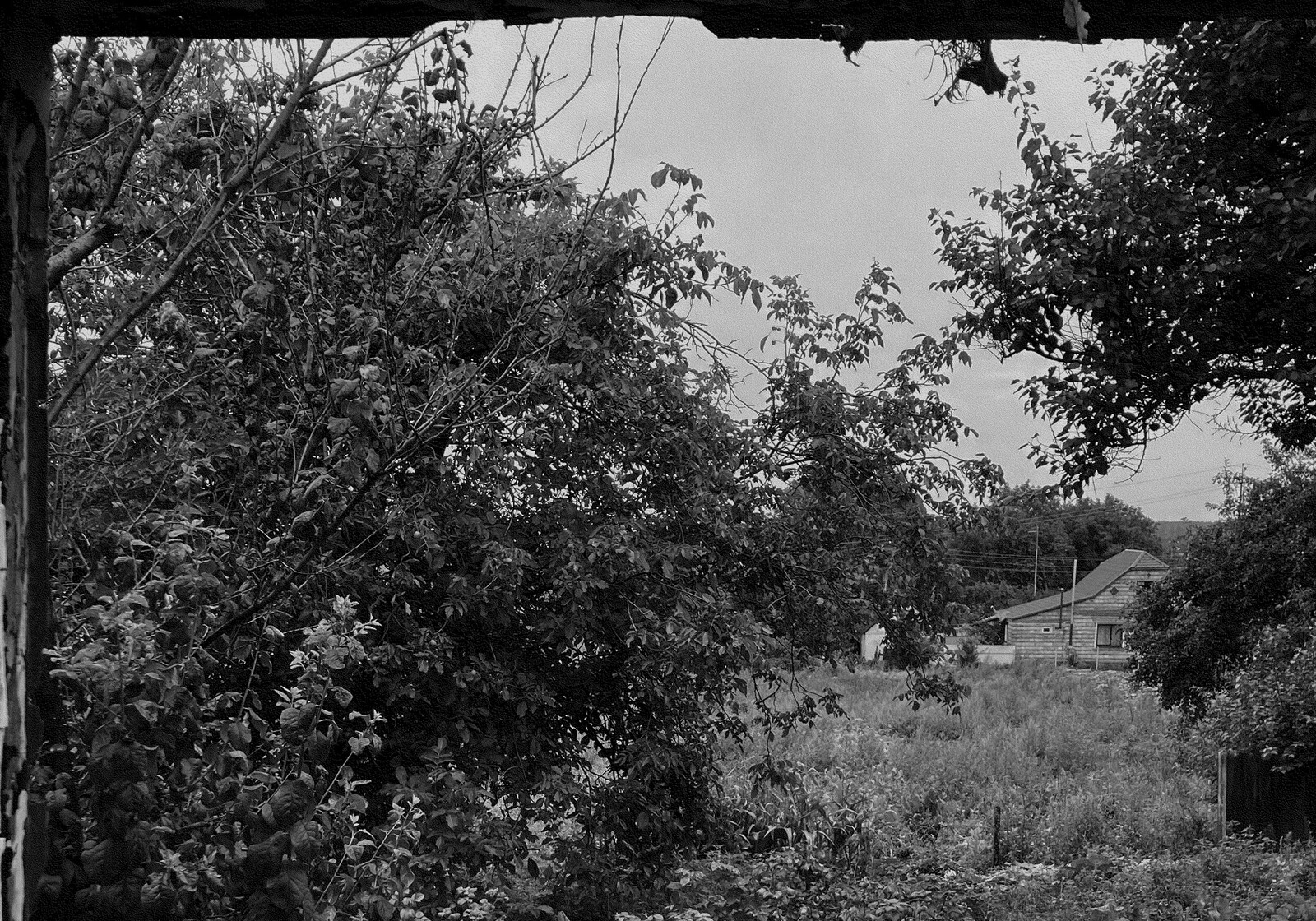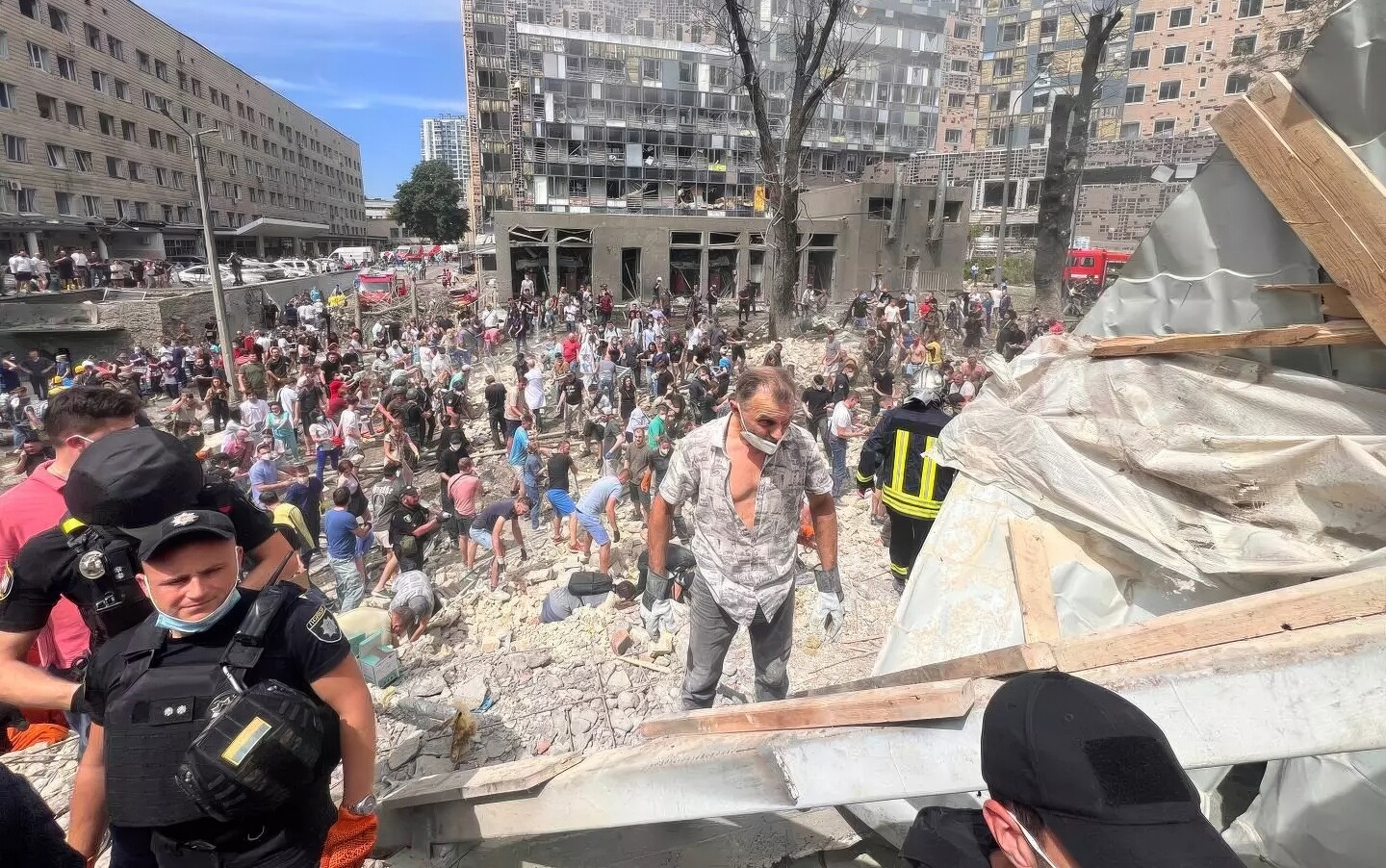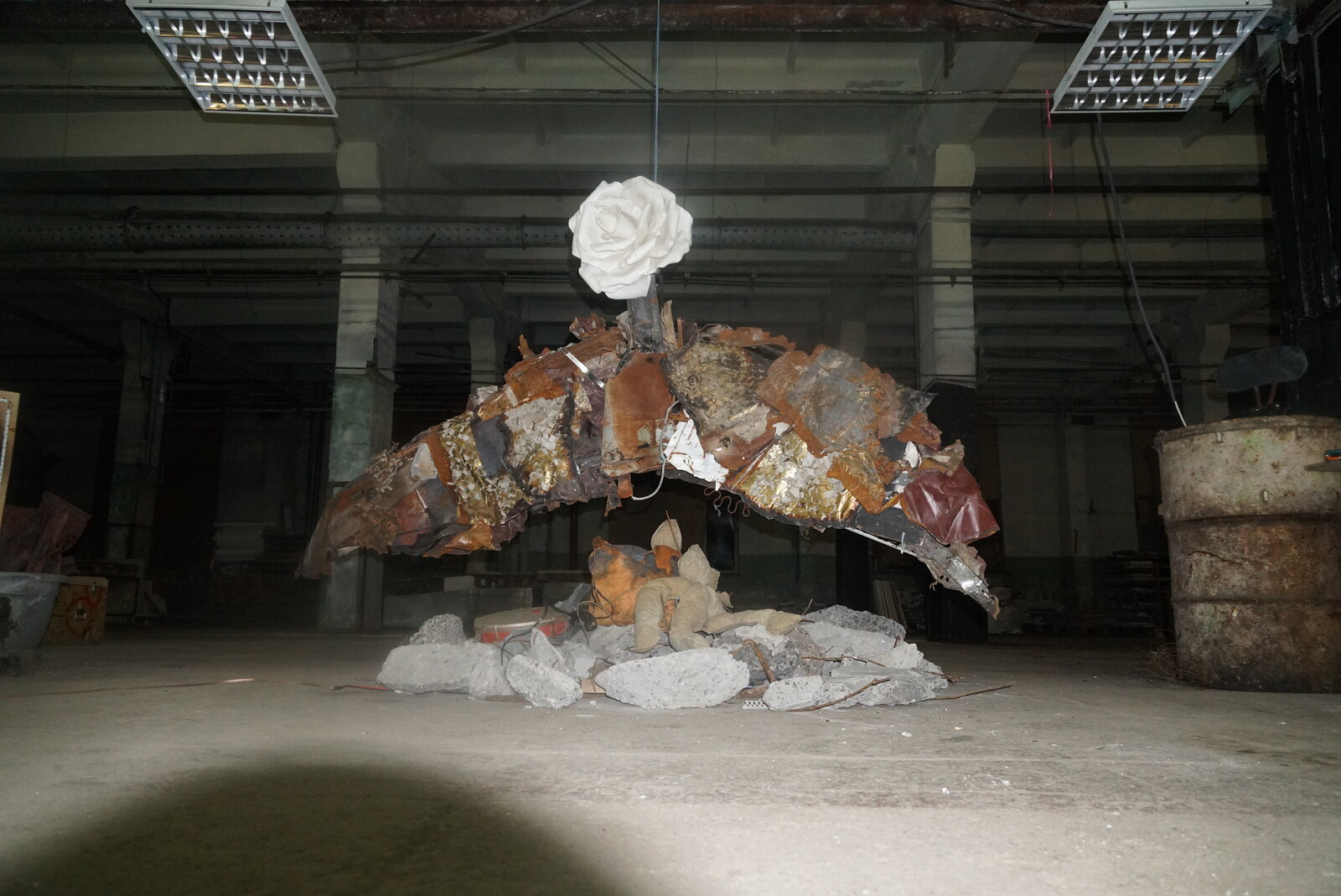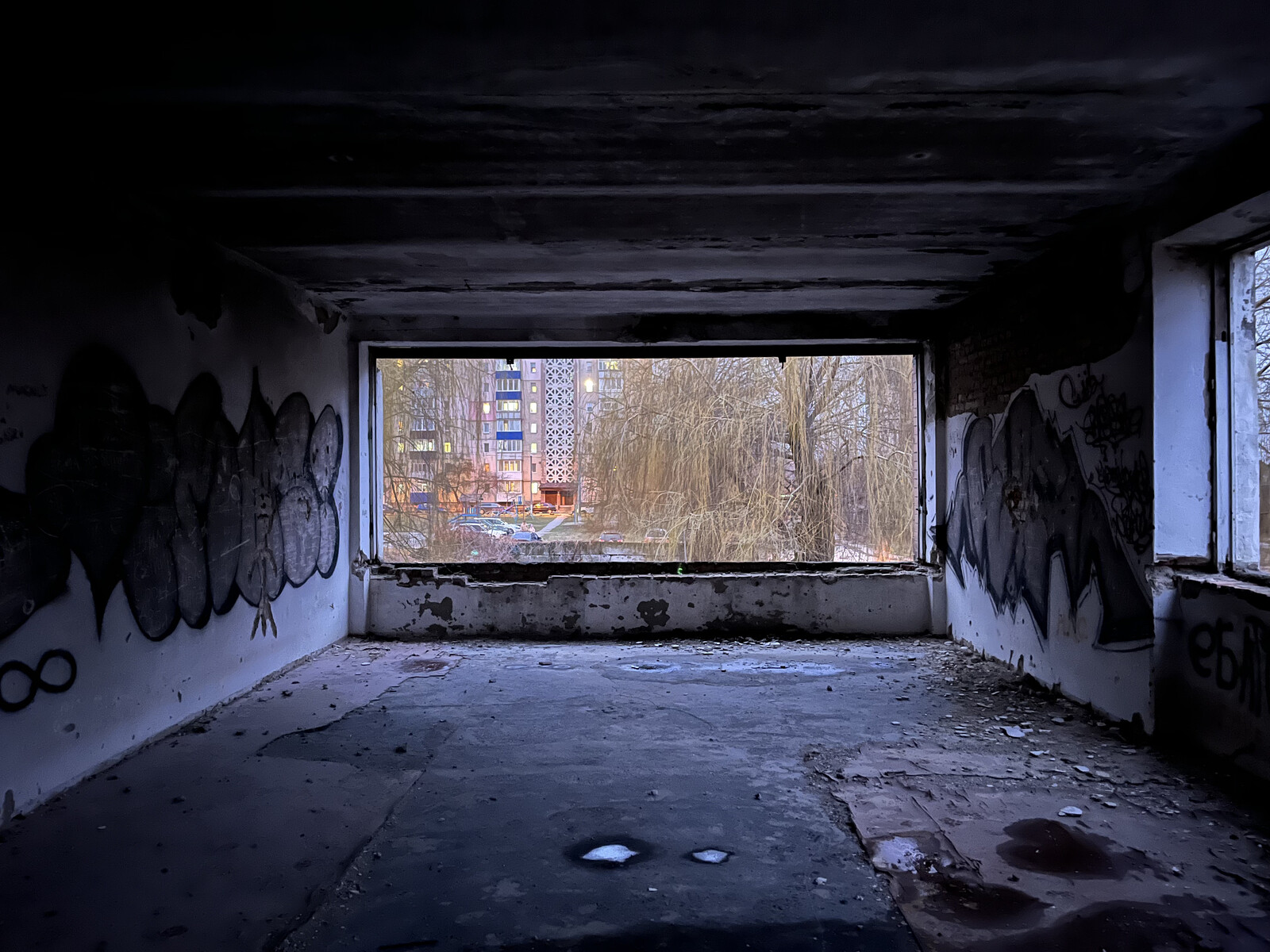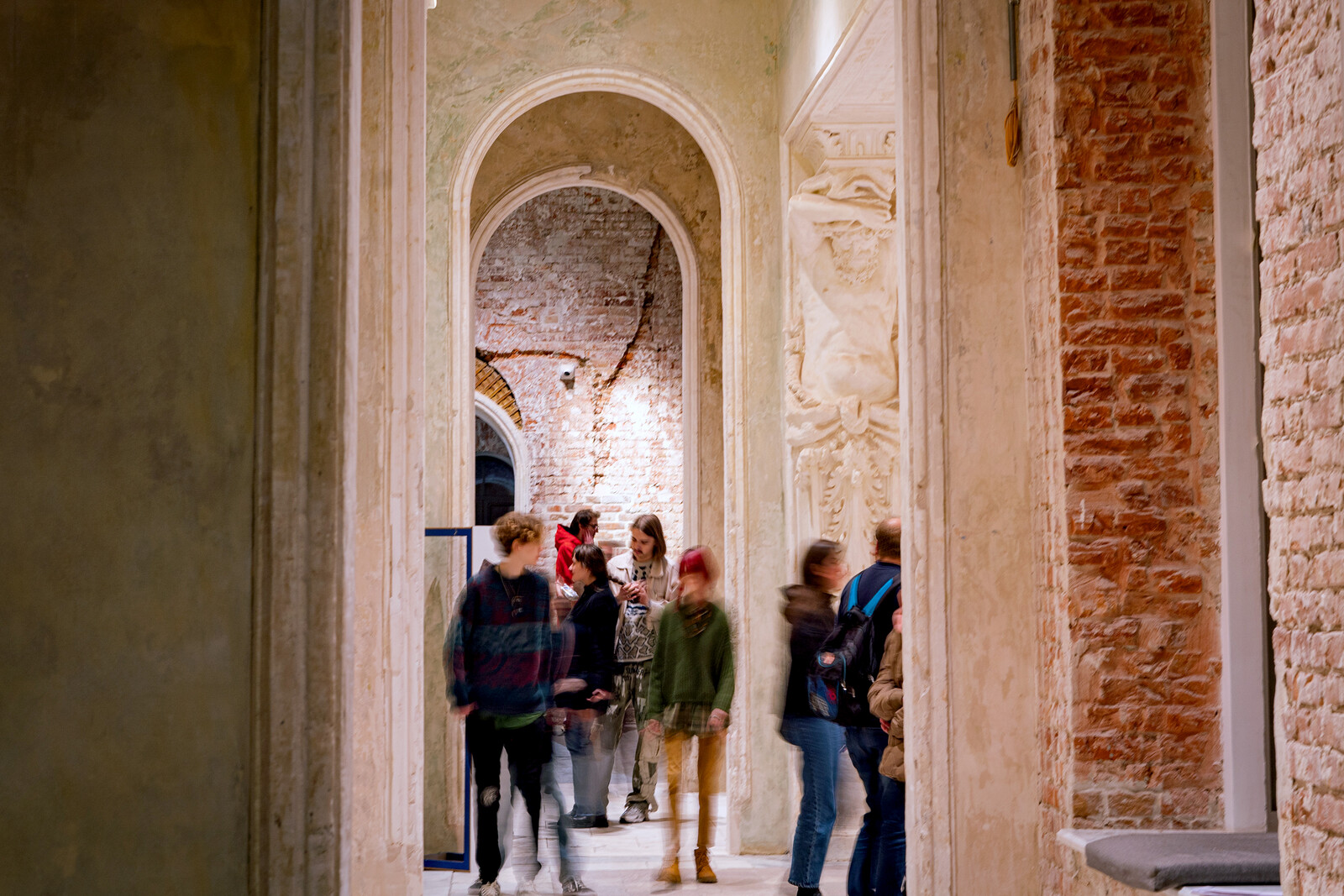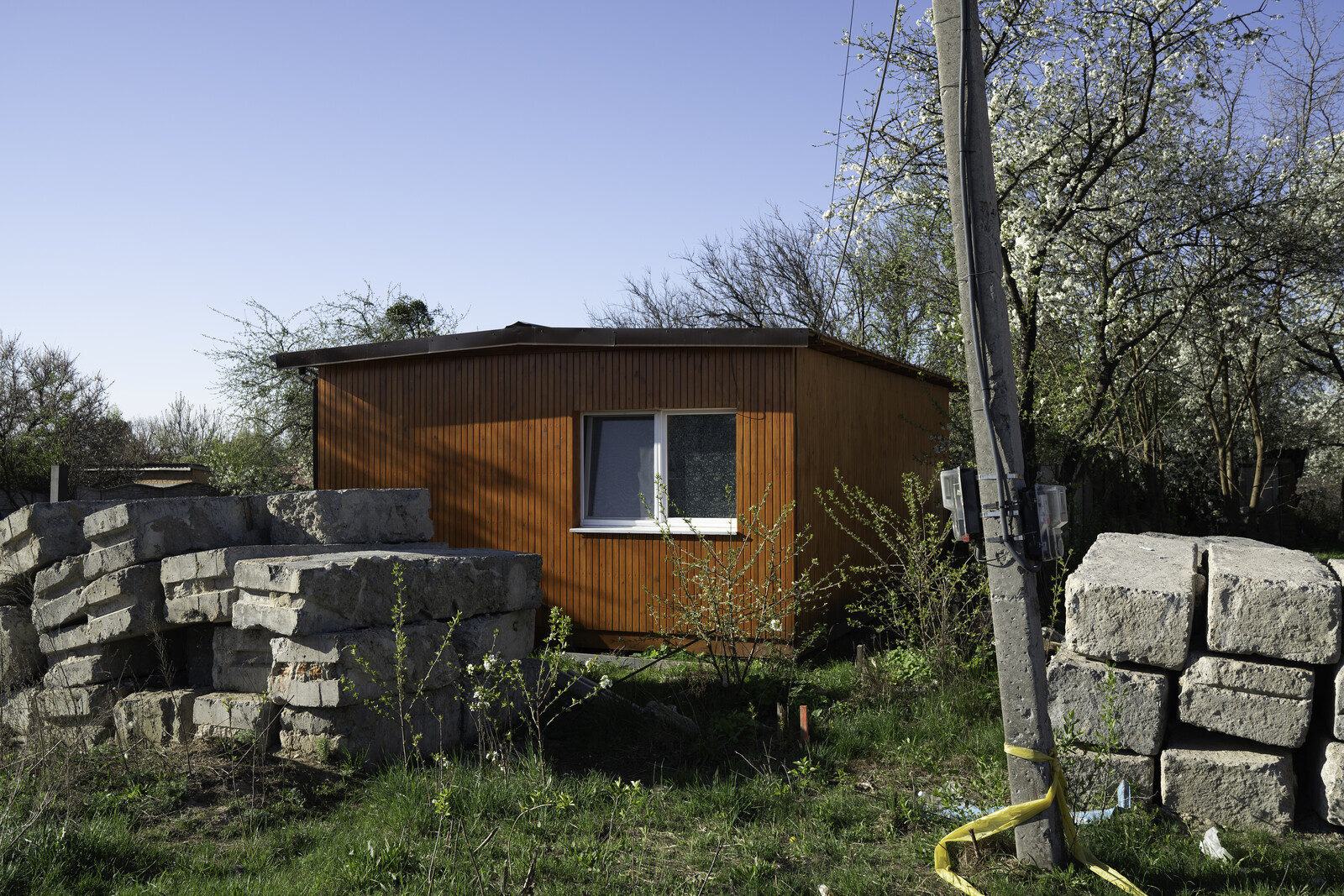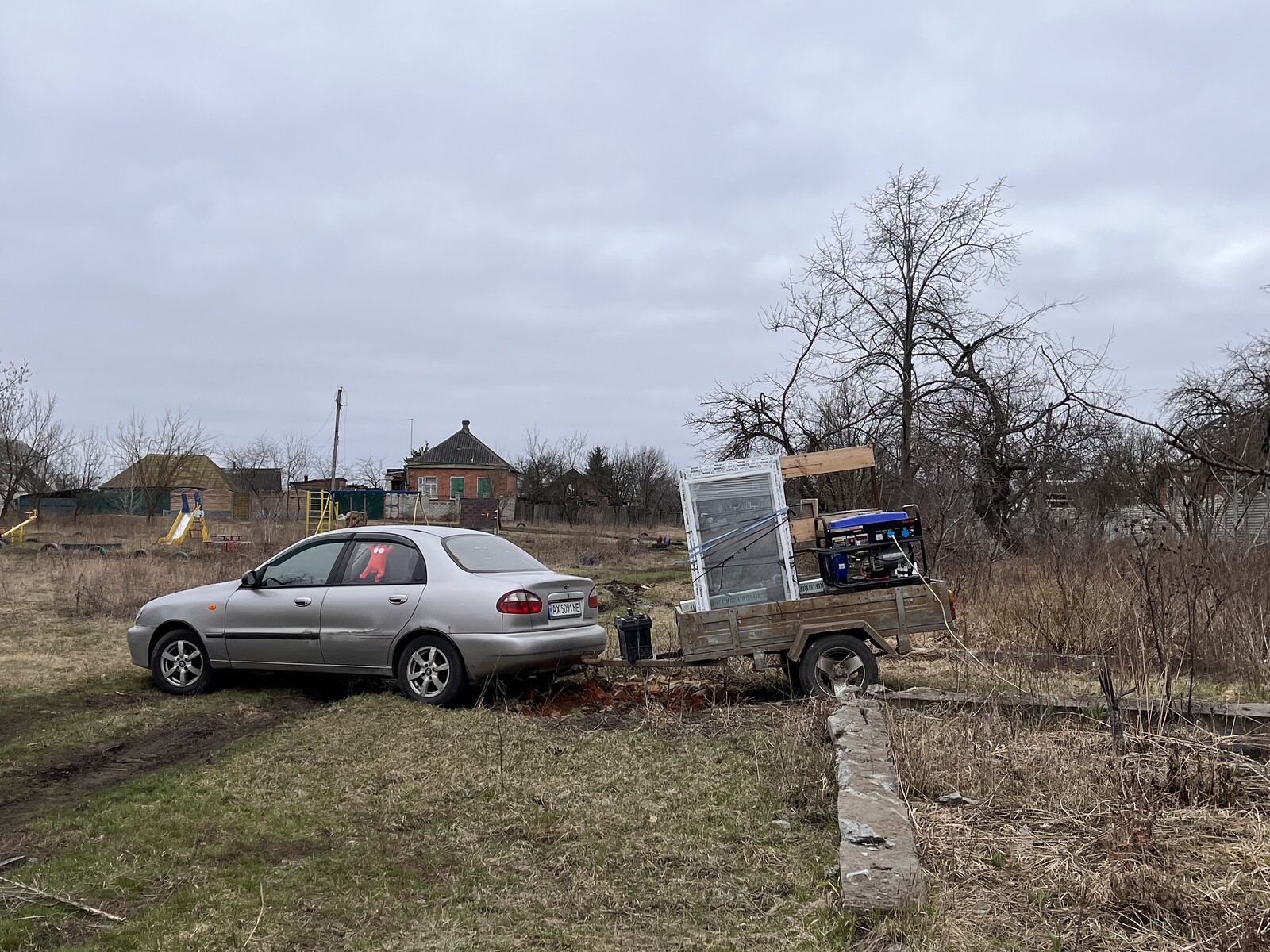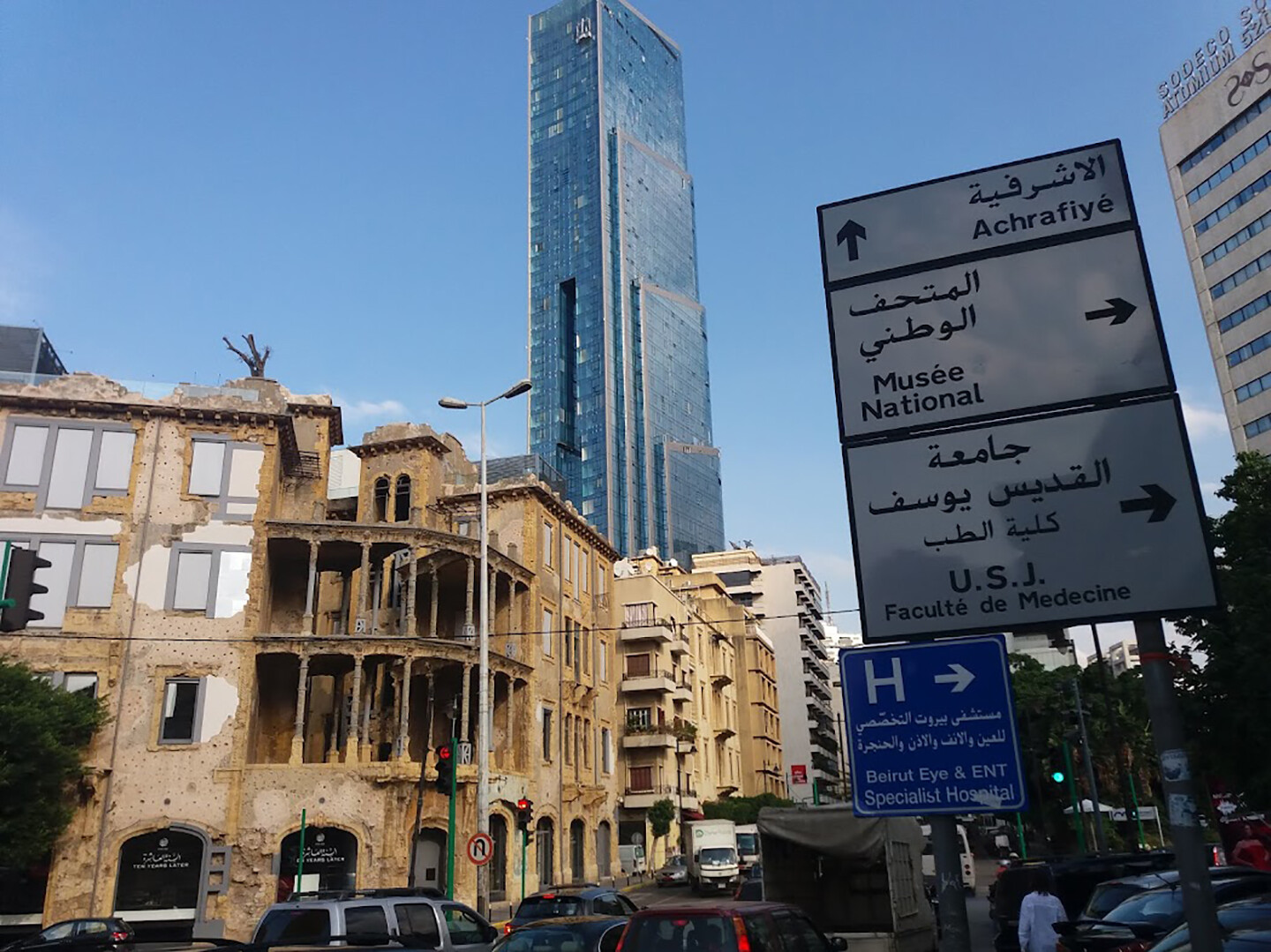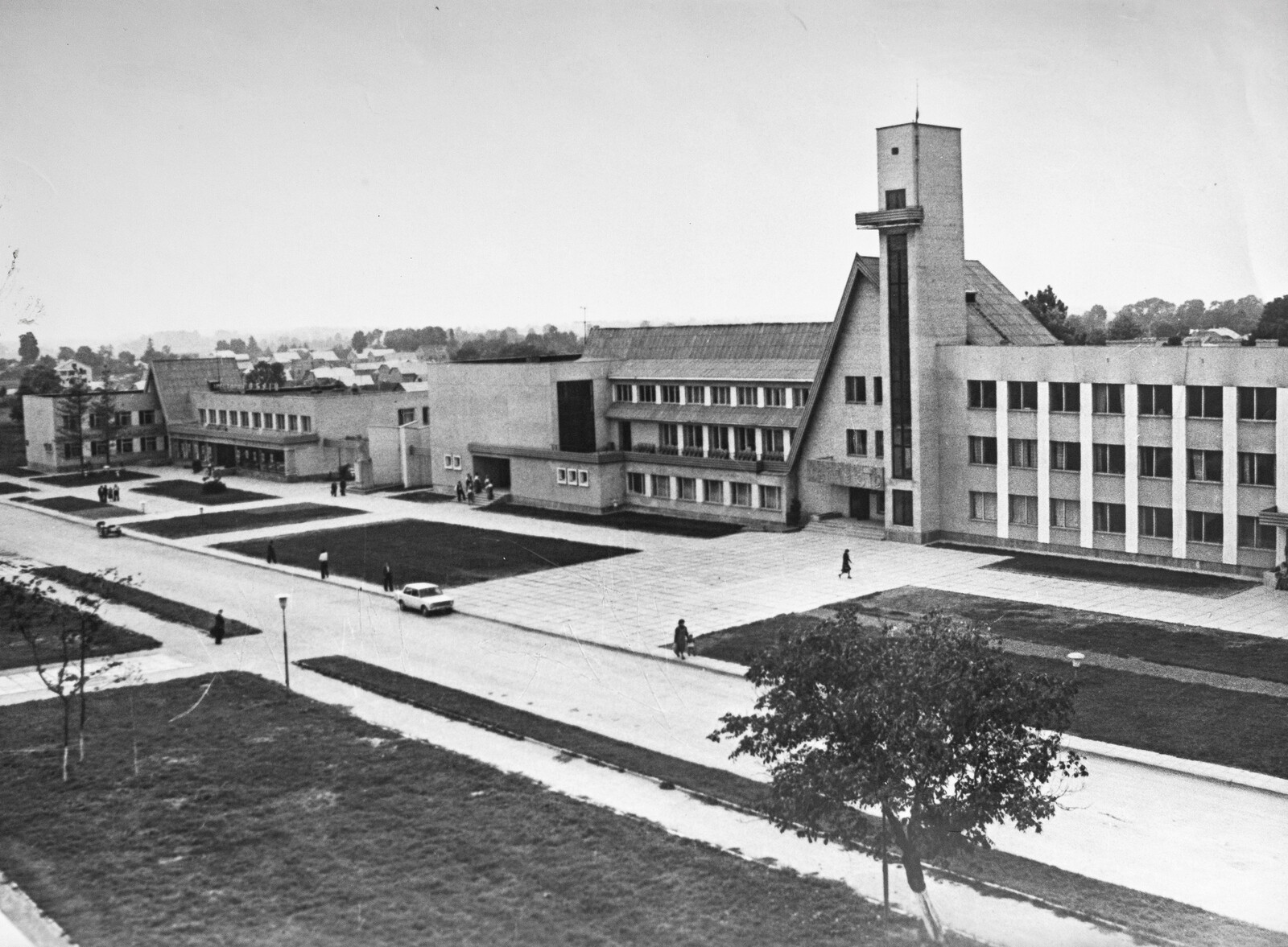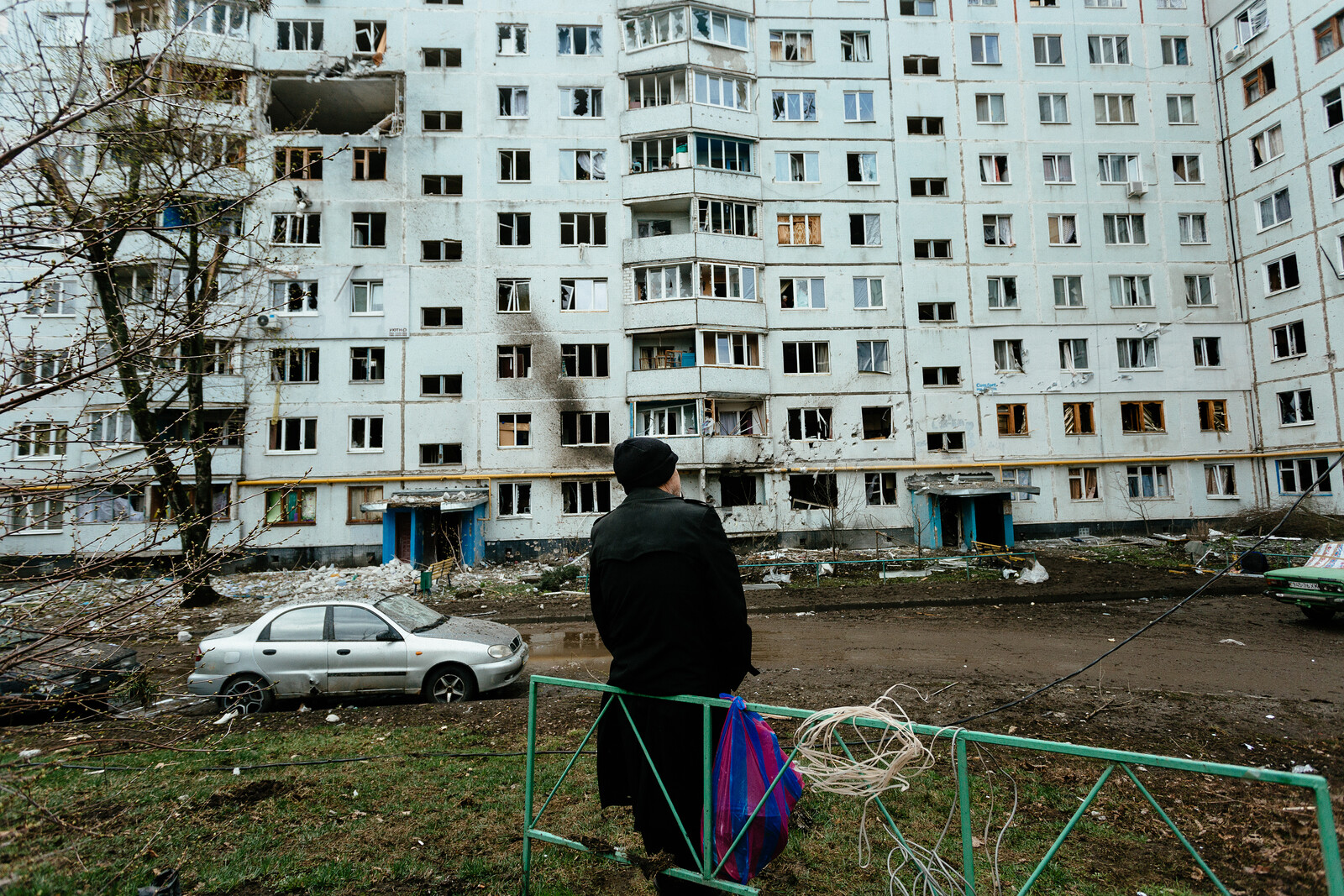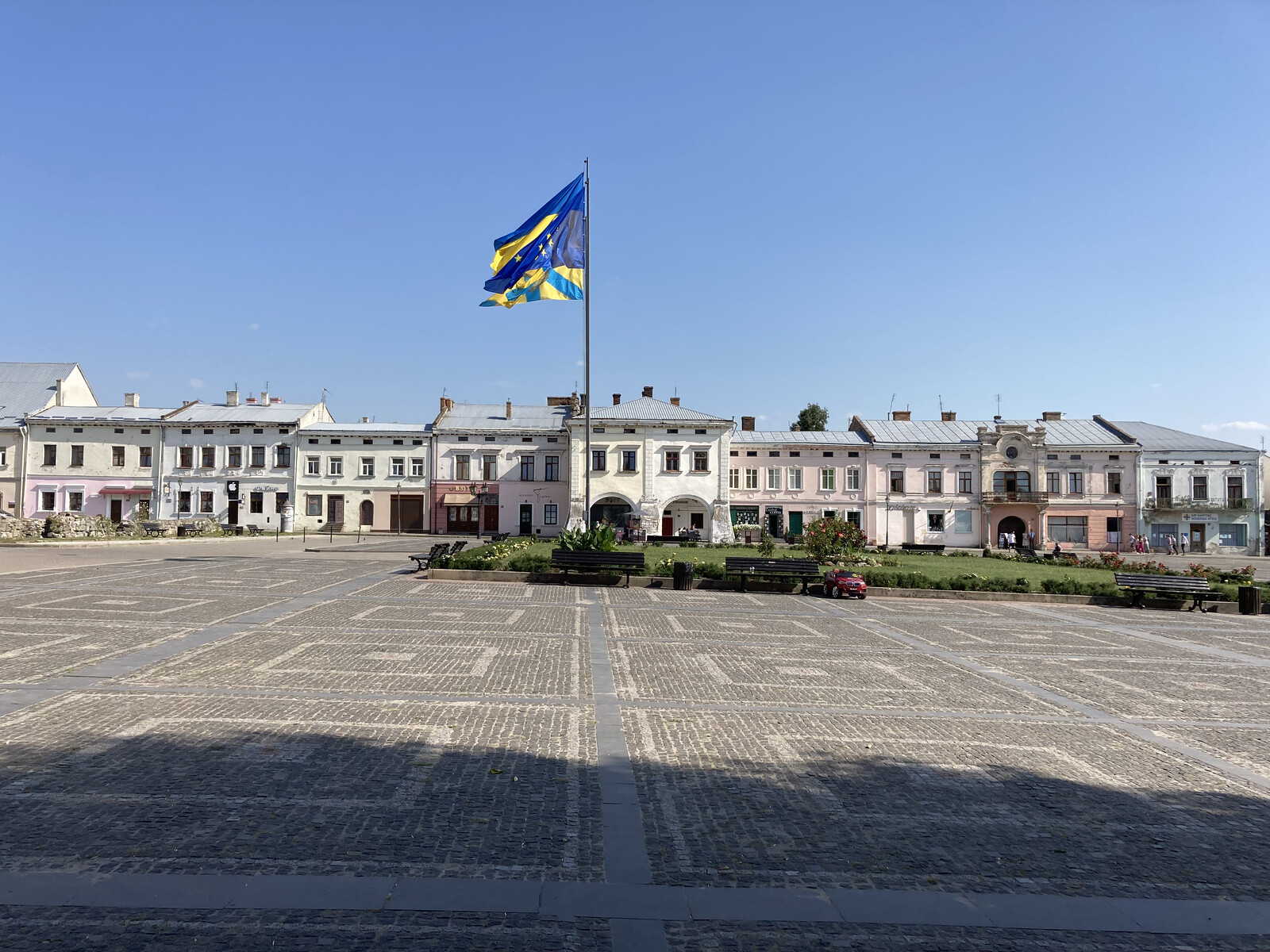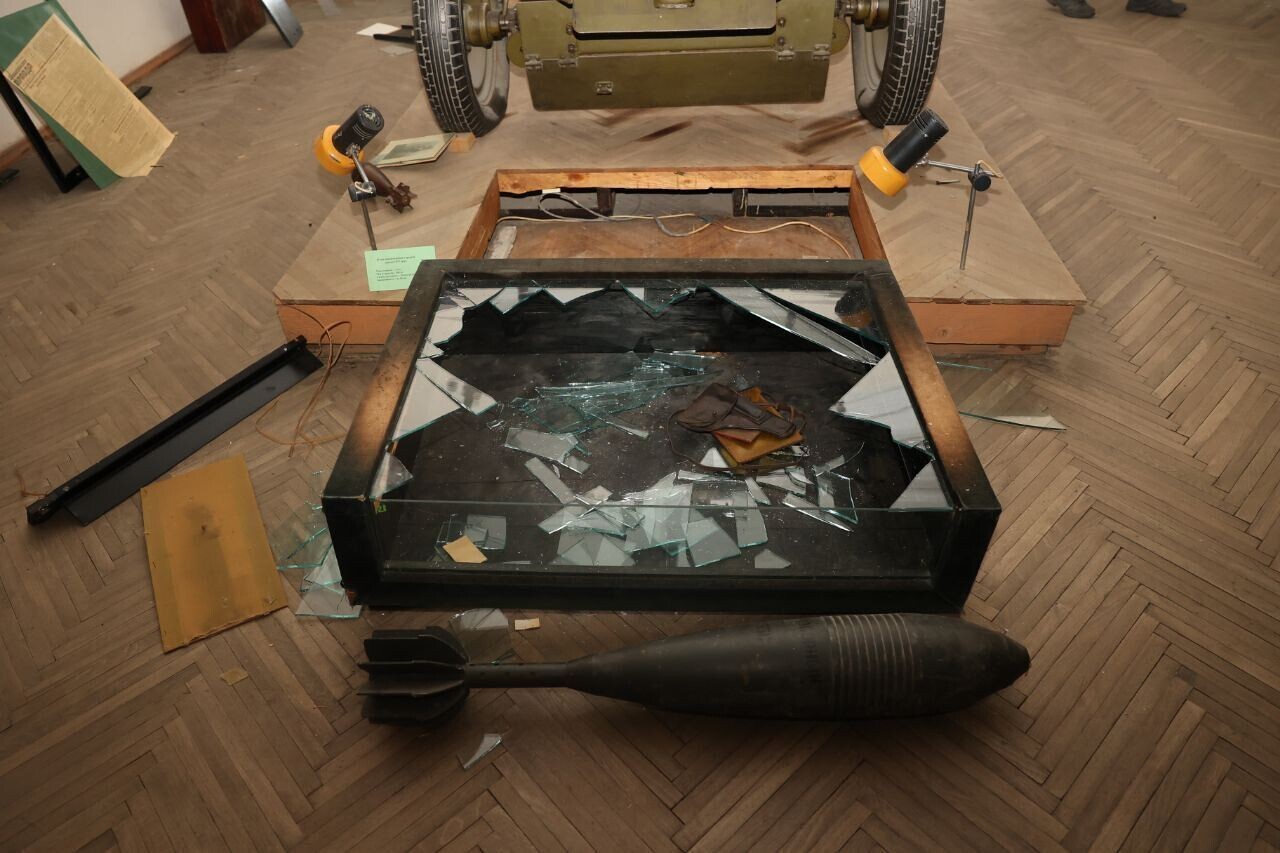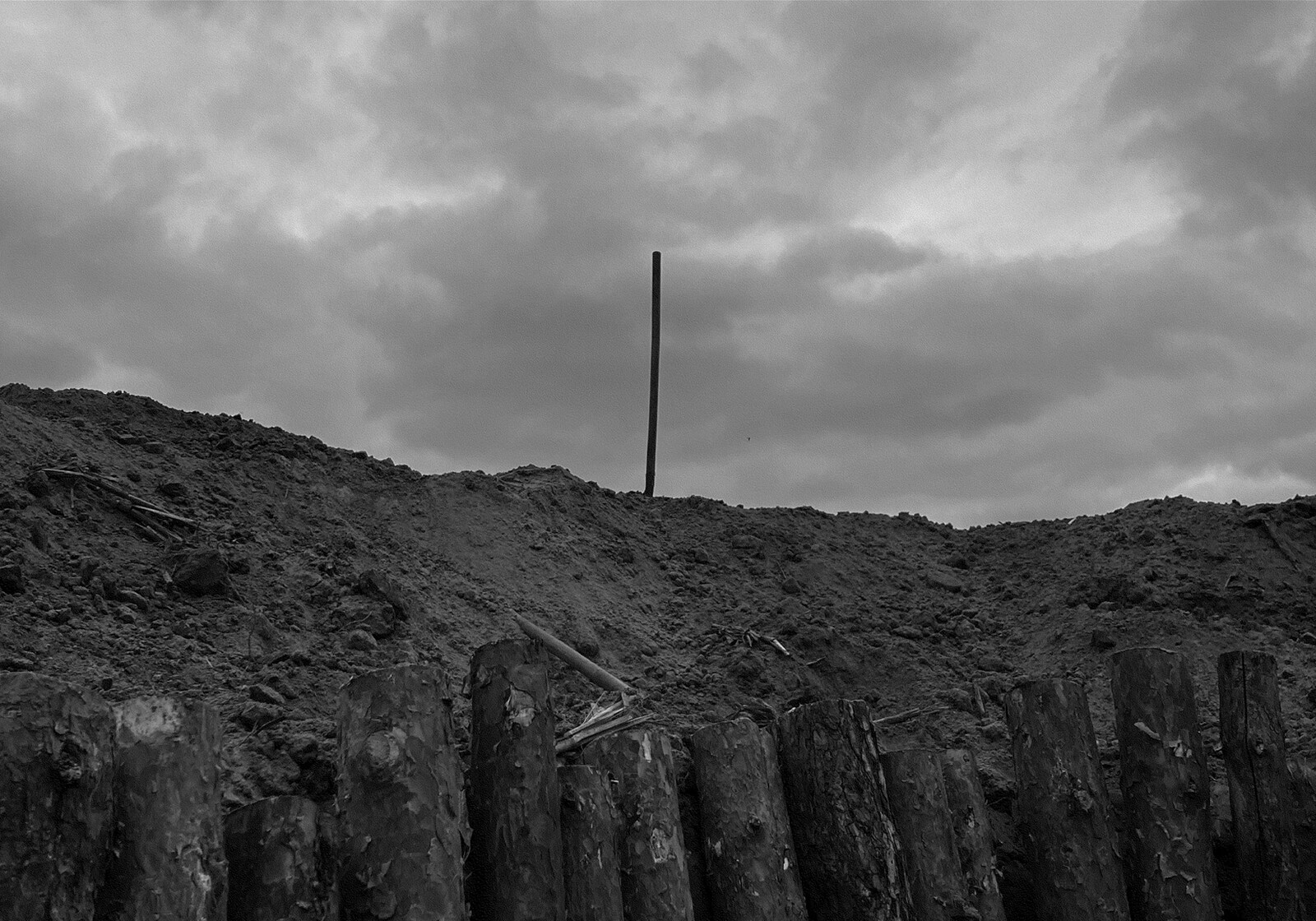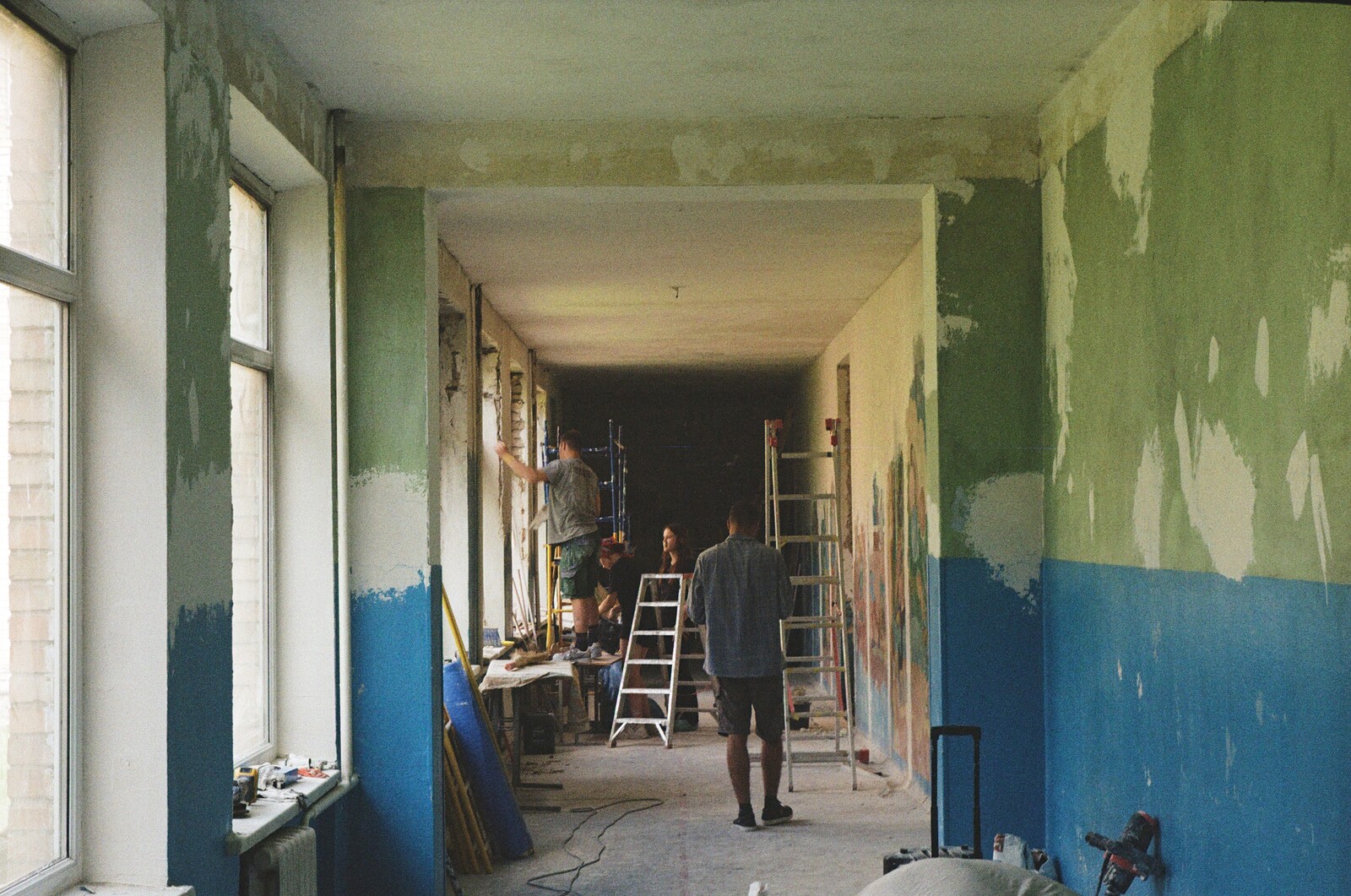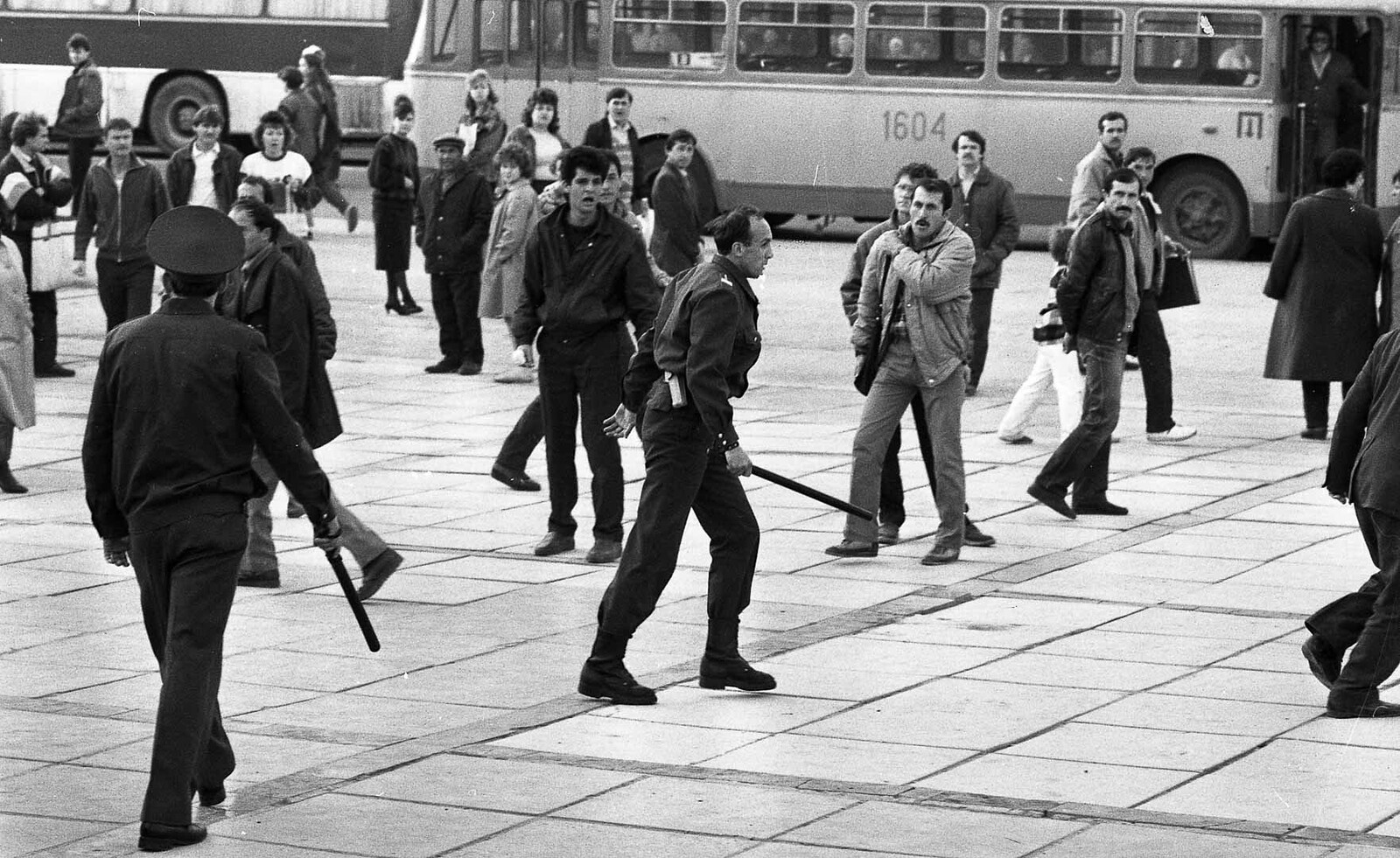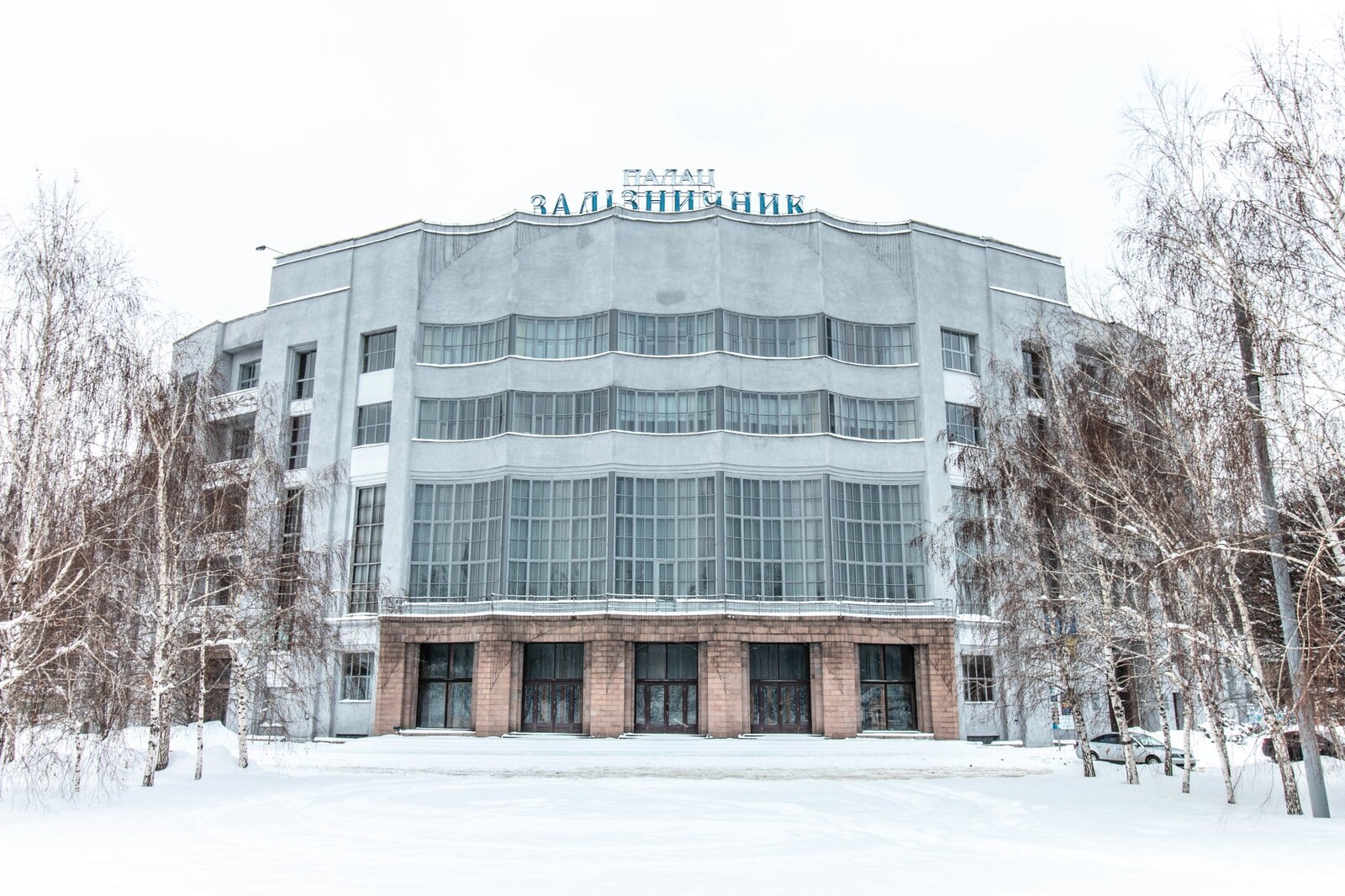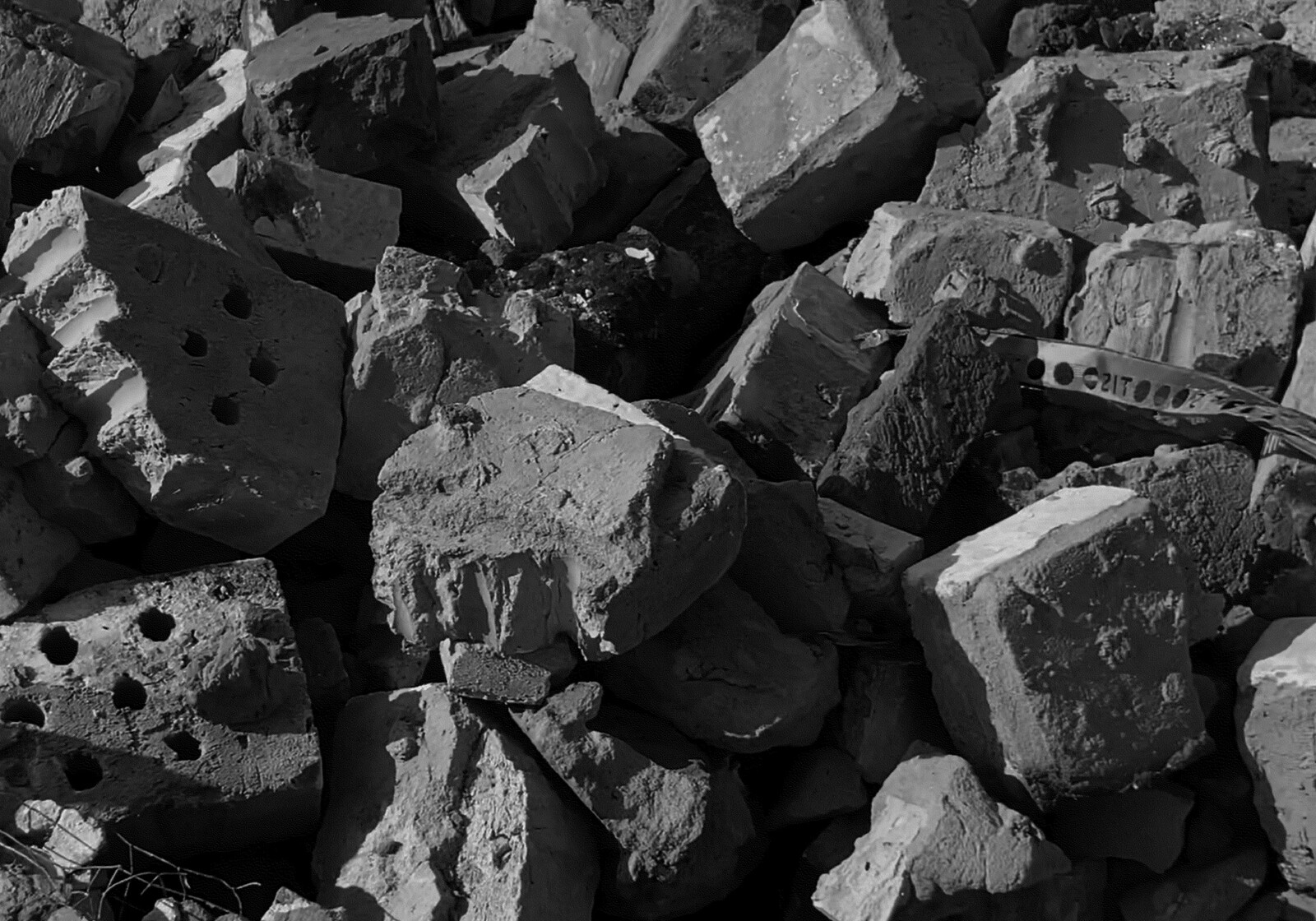The expert panel and open roundtable “Restitutions: Appropriation, Expropriation, Regulation” was held on September 11, 2022 as part of the international symposium “The Reconstruction of Ukraine.” An edited transcript of the roundtable is below, and continues from the panel published separately here.
Denise Ferreira da Silva: We all are now witnessing what globalization is all about. We realize that our degree of interdependence is such that it is not only our shared humanity that makes us care about what’s happening to the population of Ukraine, but also our daily lives, sometimes in painful ways. So, when we talk about questions like restitution and reconstruction, we must ask what would be the global limits of such a reconstruction? It has become clear that the solutions themselves may generate new forms of subjugation and modalities for profit-making.
If the global economy is reshaping will that reshaping generate new modalities for profit or animate the old ones? In other words, what are the possibilities for a real reconstruction and for a new social contract? What would be the global limits for that reconstruction, in the conditions of this interdependence? As Vladyslav was talking, I realised that this new social contract is also a global contract. After the war, what will the new reconfigured global economy need? Will it need Ukraine as a failed state that might drive a reconstruction economy?
Joanna Kusiak: We have to keep in mind that when we say reconstruction after the war, in the current political situation, even this idea of “after the war” remains very unclear. If you look at Syria, there is no agreement, are we after the war or are we still during the war? It means this way or another some reconstruction processes might happen amidst some kind of a hot phase of war. So the solutions we are designing might be very fragmented. And most probably it won’t be like the reconstruction in the 1940s and 1950s when on both sides of the Iron Curtain reconstruction was pretty much a top-down project of a very strong state. The state might have been either socialist or capitalist, but that capitalism was different from today’s globalized capitalism.
Therefore, there will be a globally fragmented conflict amongst many different stakeholders under the system of globalized neoliberalism in which real estate is a primary source of financial speculation. So, on the one hand, we will have to figure out the space of funding, building, and working for groups on the ground, not necessarily on a country level, but on the level of each city or even community. On the other hand, we know that there will be entities that will cynically try to profit from reconstruction. Hence this notion of community and working directly with people on the ground, the notion of fragmenting or collectivizing property rights.
Law, and especially property law, solidifies power relations. Whoever can change the law, then, can change power relations. That’s why, when we think of property restitution, we should be wary of being limited to the default framework of individual title.
Vladyslav Rashkovan: About the new global social contract during this war, let’s imagine an analogy of someone who robbed someone else’s house, say in Cambridge, Massachusetts, or in Warsaw, and now is trying to sell what he has stolen. At the same time, he starts killing people one by one on the street. Alongside all of this, he says that he is a consultant or accountant, and offers you his services, even at discount. Would you buy from him?
To develop this analogy on a global level, Russia stole Ukrainian grain from the southern ports of Ukraine, from Kherson and others. They wanted to sell it, and there were some countries which were ready to buy it. This is exactly like buying from the robber on the street. At the same time, there are also countries who, despite the efforts of many different task forces to limit Russian exports, are still buying Russian oil, sometimes even with a discount. India, for example, buys Russian oil and tries to resell it, just to help Russia to overcome the sanctions.
A new global contract is therefore very important. Is the world really ready to support those who rob houses and kill people? Speaking about globalization per se. Ukraine benefited largely from the globalization of the last forty years. Global trade went a little bit down after the 2008 crisis, but sustained even during Covid. But the current actions of Russia is dividing the world. Russia is doing anything possible to kill all those benefits of the globalized world.
Perhaps this is a bit cynical, but I want to follow what Simon was saying about Russia’s power, which it has acted on, to stop selling oil and gas, at least to parts of the world.1 In the long term, this will help the climate. Maybe it will even speed up the green transition. This will be painful for many countries, and it will largely not be voluntary. But Russia has shown that their energy exports are a weapon, not a commodity. To come back to analogies, are we ready to use these weapons against ourselves? This is a question that countries like Germany, and also Hungary, should ask themselves.
Simon Johnson: To reinforce points made by Vlad, the existing structure of forums for determining compensation and the specifics of the Iraq 1990s Food for Oil program are just not going to work today. They took place under the auspices of the United Nations, and that part of the global structure is completely broken. Now, to turn to today, the Russians stealing Ukrainian grain is a very prominent example. However, it is not only the current purchases of Russian energy at relatively high prices by countries like India or China that is continuing to finance the Russian war effort. Europeans are still buying Russian oil and still paying high prices for Russian gas. And while Western Europe, the EU and friends, has provided great assistance to Ukraine in various forms during this invasion, they have also funded and continue to fund the Russian war effort. Those same people and their policies also provided Russia with free cash flow over the past twenty-five years that was put into building up the Russian military.
Fortunately, it appears that the Russian military was not built very well, and it may, if we are lucky, collapse in its efforts in Ukraine. This time. But if you pay them the same amounts of money again over the next fifteen to twenty-five years, what do you really think is going to happen? Do you think they will waste the money again? Perhaps, but this is not something we should bet on.
We need to develop new frameworks and forums. There needs to be a discussion about justice, legitimacy, and compensation. We have to go back to fundamentals here. Ukraine is fighting not just for European values but for justice. I’ve heard President Zelensky speak about creating a framework that would prevent or massively disincentivize countries from attacking each other in the future. That is what’s at stake here; that is what we all have to build. Because if we don’t, we will allow Russians to re-arm, re-equip, and re-invade whoever they want to.
Oleksander Kravchuk: Simon, you mentioned the problem of gas dependency from Russia. But what happens when Russia stops exporting gas to Europe and Ukraine stops taking this gas for itself? What new green energy programs are needed in place of those existing ones which extract resources from Ukraine? There is no sustainable system yet for green energy in Ukraine.
SJ: In the medium term, to reduce dependence on Russian energy, a large program of investments is needed not just in Ukraine, but in other European countries. I think that over a period of decades, Finland had the right attitude: you can trade with Russia, you can even buy energy from Russia, but you should not depend on it, you should not give the Russians any hold over your economy.
VR: I strongly believe that cheap Russian gas was the biggest damage that Russia did to Ukraine from 1991 to 2004, because it completely disincentivized Ukrainian industry to reform, to transform, to modernize. These were thirteen, fourteen years of missed opportunities for Ukraine because of cheap Russian gas.
SJ: May I just say that there is no such thing as cheap Russian gas. It doesn’t exist. If you think it’s cheap, you’ve just fallen into the trap that Ukraine fell into, that Germany fell into, that the whole Europe fell into. Get rid of that idea right now, and build a future without it.
DFdS: There is a question from Robin in the chat: “A business elite, a class of Ukrainian oligarchs seem to be the elephant in this Zoom room. Could the speakers address this category of investors and illuminate their role in the current situation, as well as their potential role in decision making processes of the future?”
VR: This is a long topic, but let’s try to answer concisely. The oligarchy per se is a function of many different internal mismanagements of the economy and of the rule of law. Before the war, the oligarchy was using corruption to extract rent, to exploit state-owned enterprises, state-owned banks, low-paid professional bureaucracy, etc. All of this was before the war. Some oligarchs, like Rinat Akhmetov, have been substantially hit by the war. Some of them are really supporting Ukraine with their enterprises and even withdrawing from the media. Akhmetov, for instance, who decided to close his media empire and not to have an impact on the society. I don’t hear anything about Igor Kolomoisky, unfortunately, even if he is sanctioned by the US. He is silent. A few other people are abroad.
Will Ukraine have oligarchy after the war? This is a big question for the Ukrainian social contract to come, because reconstruction can unfortunately create a new cohort of Ukrainian oligarchs, or it could finance the existing ones. This is a question about society itself—a society that can self-organize during hot periods of crisis, but becomes a little bit passive when the hot period is over.
Dan Jonas Roche: I’ve been following the debate around the future of Ukraine’s debt for a while now, and I would like to connect it to the reconstruction of cities. Let’s take the Kharkiv masterplan, and say a loan is made to the city for the reconstruction of housing. How exactly will the distribution of capital work? How much market rate housing will be built, and how much below market rate housing will be built? As Oleksandr Anisimov points out, 0.3% of housing stock in Ukraine today qualifies as social housing.2 So when we talk about how capital is used for reconstruction vis à vis loans, where is that money coming from, and what are the incentives that are attached to them?
VR: I am not an architect or an urban planner, but this question is still about the modernization of the state and the new social contract. Let’s imagine Irpin or Bucha, or Borodyanka, which is 95% destroyed. What we need to do is reconstruct the city. We need to build. But how will we do it? There is a lot of discussion coming from urban planners and architects: should we try just to restore what was before? People are conservative, they want to live on the same streets that they did before and to live in a Khrushchev-era five-storey apartment building, of the Soviet legacy kind, like one they lived in before. These people owned their property or had mortgages six months ago and now they don’t. What should we do? Should we propose a completely different concept of the city, like Barcelona or Copenhagen? If so, there would be a lot of complaints from people who want to go back to what they had before.
Will we rebuild again the old building of the Khruschev period, or will we try to build new ones with apartments twice as big? Regardless, who will finance it? Who will own this new, rebuilt property, especially when people had mortgages on the destroyed property? The banks will take the hit on their balance sheets, but if the loan is canceled, who will actually own this property? There is no answer to this question. But there are many options, like in Sweden, where, for example, during the nineties, there was a mortgage crisis. The state took the ownership of real estate, and gave it as a lease back to people, allowing them to pay a small percentage like rent as a compensation and not a bank loan.
But still, where will the money come from? How much of it should come from the state? Some part will likely be compensated by grants come to support the Ukrainian state. Another part will be financed, because instead of the five-storey building there will be a ten-storey building, and therefore five new storeys of an added value. This is the concept of “building back better.” There will have to be some new arrangements, perhaps leases rather than individual ownership, backed up by the state.
JK: If we look at what’s happening in terms of reconstruction in the Middle East, we can assume that precisely the same issue will be a primary site of confrontation. On one hand, it’s a question what will be rebuilt and how. And the second most important question is for whom. Because often the land where the rebuilding is taking place is valuable and is being targeted by capital. In Syria and Lebanon, under the banner of housing reconstruction, developers could build for-profit shopping malls mixed with luxury housing, all officially narrated as a housing project. Some Syrian cities were a little bit destroyed, but people still lived there. Later they would be given some bonds or shares to move out. Then a luxury reconstruction project would be built on top of where they lived, and the bonds and shares they got were not nearly enough to buy an apartment in those reconstructed areas. This alleged reconstruction also became a tool of dispossession, of moving poor people away from valuable land in urban centers.
Michał Murawski: In Warsaw, reconstruction took place following the state’s nationalization of all urban property in 1945. The same was true in the USSR, and even in Western Europe, the state played a much more prominent role in the reconstruction process, and the economic landscape was completely different than today. Today, the mechanisms referring to the relationship between the public and private within Ukraine’s reconstruction process have not yet been established. But the fact that we are able to talk about this today, and the fact that someone like Vladyslav, who is Ukraine’s representative on the IMF, is able to discuss social or public, or public-adjacent arrangements for property ownership, is very important. But the question is, does the state play a prominent role in a reconstruction process, or will it leave things in the hands of property developers? We can see this at play also in Kharkiv, where the British architect Norman Foster’s office is functioning basically as a property developer rather than as an architect. And if the state does play a prominent role in the reconstruction process, through mechanisms that are yet to be established or made clear, how do we stop this exacerbating Ukraine’s indebtedness to global entities?
OK: We need to reconstruct the role of the state and the role of the regulator in this process. When I look at the Lugano plan or the new economic strategy presented in the summer of 2022, I see nothing except for things like loans to small businesses and improving IT skills for the workers. But we have to start the development of a huge economic plan that has strong labor rights for Ukrainian people. Today, for instance, enterprises where fewer than 250 people work do not need to follow state law. All employees need to negotiate their own labor rights with their employers. If the Ukrainian state does not play a bigger role in this reconstruction, the new social contract will not be favorable for the people. We need to look back to the consequences of the 1990s too. Not only Russian-owned enterprises should be nationalized, but also those owned by Ukrainian oligarchs.
MM: So reconstruction is also an opportunity to reverse the primitive accumulation of Ukrainian public property which occurred in the 1990s.
Oleksandr Anisimov: Our organization has been working on the housing question and I think that there is one aspect that we’ve been missing in Ukraine: that housing can also be a non-financial asset. This is housing as habitat, as a place to live and as a necessity for people to be able to continue their social existence and be provided with basic services. In this sense, housing may also be considered as something that falls out of the classical economic model.
In many cases in Europe, we can see the rebirth of cooperatives, syndicates, and other forms of social housing that is not governed by the state. These forms are, in a way, absent from classical economical models because international institutions and donors cannot invest and hold shares in such a system. This is housing that is built and governed by people themselves, which allows them to prevent speculation on the market, and thus to prevent the spiraling of housing prices. Initiatives such as these do not need much investment, but it does need regulation, a legal framework. The challenge is to make it less a system of ownership and more a system of co-ownership and sharing.
VR: All the major papers which we currently have about reconstruction—CEPR Blueprint, the Marshall Fund report, the World Bank damage assessment report, articles by Barry Eichengreen and Simon Johnson too—say that the grants should come first.3 You cannot rebuild the economy of Ukraine using loans. But we need to not just speak about grants, which are usually from public sources, and about loans which are usually from international financial institutions. We need also to talk about private capital. Without it, we cannot reconstruct Ukraine. This capital will not come now, but later, as investments. The last thirty years of the direct foreign investments to Ukraine were not so fantastic, but I will do everything possible to make these investments happen. The IMF will provide the frame, the World Bank and the European Investment Bank will provide development money; we will use Russian assets for reconstruction, for building housing, etc. But private money will come and make a change for Ukraine, not public money. The money can go to development projects, to building new construction factories for Ukraine, to make building materials, hopefully green ones.
About cooperatives, it is the true that we are going towards a more shared economy, especially the younger generation who want to be more mobile and considers property an anchor, not an investment. But someone needs to build this housing so that it can be co-owned later. Capital should be brought in order to rebuild the city of Borodyanka, for example, and afterwards to make it an IT cluster or a creative cluster. Someone has to bring the capital, and this money cannot just be loans. We need other sources, other donors, for Ukraine to sustain the reconstruction process.
DFdS: It’s so clear the extent to which the future of Ukraine is the future of all us, in terms of the models that are being discussed now and which will hopefully be developed in the future.
The Associated Press, “Poland and Bulgaria say Russia is suspending their natural gas supplies,” NPR, April 26, 2022. Christoph Steitz and Nina Chestney, “Russia deepens Europe’s energy squeeze with new gas halt,” Reuters, August 31, 2022. Uliana Pavlova and Anna Cooban, “Russia cuts off gas exports to Europe via Nord Stream indefinitely,” CNN Business, September 5, 2022.
Oleksandr Anisimov, “Spatial Planning in the Face of Crisis,” Reconstruction (e-flux Architecture, 2023). See ➝.
Reconstruction is a project by e-flux Architecture drawing from and elaborating on Ukrainian Hardcore: Learning from the Grassroots, the eighth annual Construction festival held in the Dnipro Center for Contemporary Culture on November 10–12, 2023 (2024), and “The Reconstruction of Ukraine: Ruination, Representation, Solidarity,” a symposium held on September 9–11, 2022 organized by Sofia Dyak, Marta Kuzma, and Michał Murawski, which brought together the Center for Urban History, Lviv; Center for Urban Studies, Kyiv; Kyiv National University of Construction and Architecture; Re-Start Ukraine; University College London; Urban Forms Center, Kharkiv; Yale University; and Visual Culture Research Center, Kyiv (2023).
This panel took place as part of the conference “The Reconstruction of Ukraine: Ruination / Representation / Solidarity,” on September 11, 2022.
